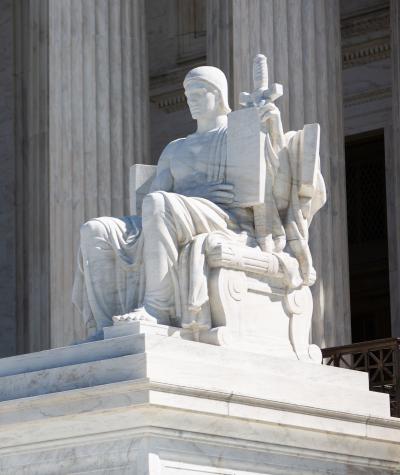The desire of wealthy special interests to make anonymous political contributions cannot be permitted to overrule the well-established precedents upholding disclosure laws.
Americans for Prosperity Foundation and the Thomas More Law Center failed to comply with California state law by refusing to provide a list of their largest donors—the “Schedule B” from federal tax forms—to the Attorney General’s (AG) office on a nonpublic basis.
Challenging that law in Americans for Prosperity Foundation v. Bonta, the organizations sought to escape state laws regulating tax-exempt groups in order to conceal the identities of its top donors from the AG.
The state rightfully asserted that the law requiring nonpublic reports is necessary to effectively enforce its tax and nonprofit laws and prevent charitable fraud.
On July 1, 2021, the Supreme Court ruled in favor of Americans for Prosperity Foundation and the Thomas More Law Center, granting wealthy special interests a win, albeit a narrow one.
Campaign Legal Center is disappointed that the majority chose to sidestep established precedent recognizing the important public interests in nonprofit reporting and relatively minimal burdens such reporting imposes.
While the standard of review applied by the Court here was unduly skeptical, it is one transparency laws in the electoral context easily meet, limiting the reach of this case. The decision does not call into question the longstanding laws and regulations requiring public disclosure of campaign spending.
The California Attorney General’s office used the confidential donor information in question to enforce the state’s nonprofit regulations and prevent charitable fraud and self-dealing. This limited, nonpublic information served a key role in helping the state maintain oversight over organizations soliciting donations.
This case addresses nonpublic tax reporting by charities, not public disclosure by those spending money to influence elections. Still, this ruling needlessly brushes aside precedent in favor of wealthy special interests—toughening the standard of scrutiny applied to California’s law beyond what the Court’s earlier disclosure decisions would have required.
American voters have repeatedly supported transparency measures that fight fraudulent activities by an overwhelming margin, understanding them to be essential to governmental integrity.
While this decision does nothing to undercut the Court’s long recognition that transparency in the electoral context serves the vital interests of an informed electorate, it does significantly impact the state of California’s ability to detect fraud and self-dealing by organizations soliciting donations.

